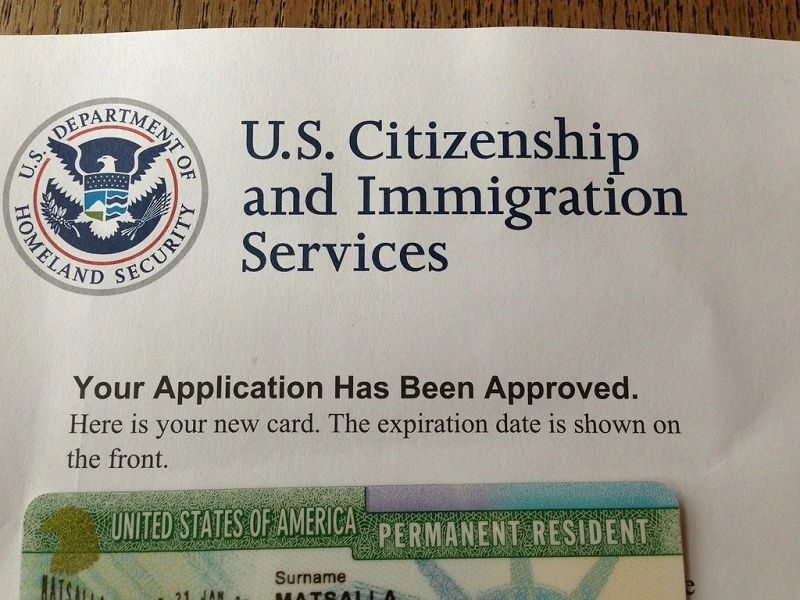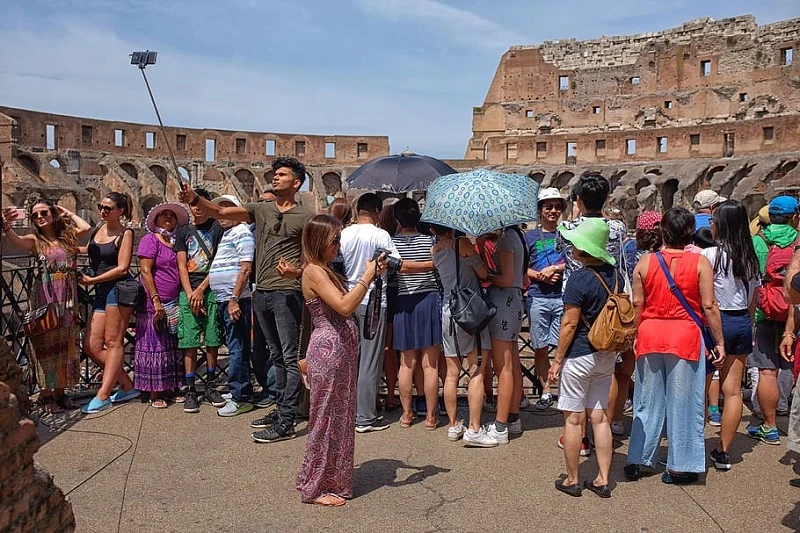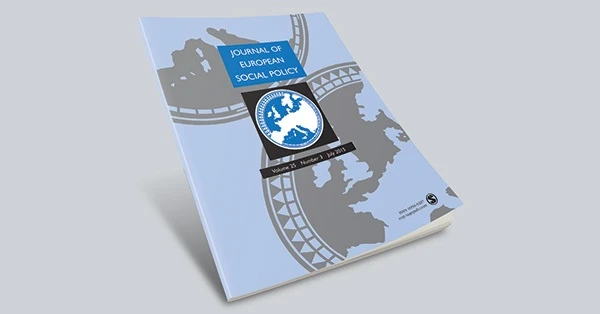
Italy has long been a popular holiday destination, but now that a new digital nomad visa has been made available, it’s also swiftly growing in popularity among remote workers.
Italy presents numerous chances for digital nomads wishing to live and work abroad because of its vibrant culture, beautiful landscapes, and flourishing startup sector.
Ever wondered how amazing it would be if you could prolong your Roman holiday for a year and explore all the historical, cultural, and natural riches Italy has to offer?
Thanks to the Italy digital nomad visa, you’ll soon be able to explore all 58 UNESCO world heritage sites located in Italy without having to sacrifice a day of your PTO or vacation days.
If you’ve been waiting for an opportunity to embrace the laid-back Italian lifestyle and enjoy the perks of the digital nomad and remote work lifestyle, we’ve got some amazing news for you.
Are you prepared to maximize your remote working experience in Italy?

We’re prepared to assist. Our guide will help you with everything from selecting the ideal Italian city for your needs to locating the top lodging and learning which co-working spaces and coffee shops provide the most dependable Wi-Fi.
Is there a visa for digital nomads in Italy?
The digital nomad visa for Italy was authorized in March 2022. While specifics are still being worked out, it is planned to permit remote workers to reside in Italy for up to a year. The self-employed worker visa functions similarly in the meantime.
You can stay in Italy for up to two years if you’re a self-employed digital nomad with a spotless criminal background, proof of the minimum income criterion, and housing in Italy.
What Is Italian Digital Nomad Visa?
After the pandemic spread, many nations launched a special type of visa to draw in foreign remote workers to their economies. These visas, sometimes known as “Digital Nomad Visas,” allow qualified persons to live in their home country for a set period, typically between six months and two years.
The Italy Digital Nomad Visa 2023 will soon be available, despite the Italian government having yet to introduce its own.
Similar to the Digital Nomad Visa, the Italian Self-employed Visa enables “highly qualified” overseas remote workers and freelancers who operate outside of the EU to relocate to Italy and engage in lawful employment there.
Requirements for the Italian Self-employed Visa
Although the Nomad Visa requirements are not yet clear because the programme has not yet been fully implemented, it can be assumed that they are similar to the Self-employed Visa requirements.
Specifically, eligible self-employed people must have a comprehensive health insurance plan in addition to meeting the minimum income requirement established by the Italian government and having a clean criminal record.
A renewable visa with first-year validity is given to those who qualify for the Self-employed Visa. When it expires, they might be able to renew it if they continue to follow the program’s rules.
Inclusion of Immediate Family Members
They might be granted a permanent residency permit following their fifth year of residence. Additionally, those applying for residency have the option to include members of their immediate families.
When relocating to Italy, digital nomads must pay Italy Digital Nomad Visa taxes or self-employment taxes, as well as comply with social security provisions.
Tax Obligations and Benefits

Although foreign professionals and remote workers moving to Italy through the Self-employed Visa will only be required to pay taxes on 5% of their annual income, tax residents in Italy will typically be required to pay a high tax rate on their annual worldwide income.
Additionally, if they register their residency in Italy, foreign workers who obtain the new Digital Nomad Visa will benefit from a 70 percent tax reduction on their worldwide income.
Documents You Need to Apply for Italy Digital Nomad Visa

The specific requirements for obtaining an Italian visa for digital nomads have yet to be specified and made public. According to the January 2022 Decree, it is currently known that applicants for the Italy digital nomad visa must be tax compliant in Italy and possess health insurance that covers their whole stay there.
The Italian digital nomad visa has the substantial advantage of exempting applicants from the requirement to get the impediment document, which is a work authorization for non-EU citizens given by Italian immigration officials.
The exact list of the required paperwork for the Italy digital nomad visa has not yet been released. However, it’s safe to assume that it will include the majority of the paperwork required for applications for digital nomad visas in other nations.
Eligibility Criteria to Apply for Italy’s Digital Nomad Visa
The digital nomad visa in Italy is intended for non-EU professionals who conduct their business remotely utilizing the Internet and other modern tools.
The Italian government has yet to develop comprehensive requirements for requesting the visa, as was previously announced. But so far, we are aware of a few crucial conditions.
For those who fit the following requirements, applications for visas for digital nomads in Italy will be accepted:
- Citizens of nations outside of the European Union,
- Professional workers who perform highly skilled labour,
- Working remotely requires internet access and other technology equipment for professionals,
- Professionals who are self-employed or work for a corporation, including those registered outside of Italy,
- Applicants with health insurance and applicants who adhere to all pertinent Italian tax and contribution requirements.
Further decrees are likely to provide more information on the following procedures and classifications:
- The families’ or candidates’ minimal income requirement,
- The specific criteria for designating applicants as “highly qualified”,
- The methods used to determine if candidates engage in the types of work activities that are considered to be “digital nomad”
- The program’s price,
- Procedures for applying for visa extensions, as well as proof of meeting the requirements for social security, health insurance, and tax compliance.
- US citizens with green cards may apply for an Italian visa for digital nomads. But keep in mind that the prerequisites and conditions listed above still stand.
Are you eligible if you are a US Green Card holder?

Your US green card expires if you are outside the country for more than a year, which is a significant disadvantage to keep in mind. Therefore, before choosing to permanently relocate to another country as a holder of a US green card, you might want to weigh the hassle of obtaining a new one.
Are you eligible if you are an EU citizen?
Since Italy is a member of the EU, you can live and work there without a visa if you are an EU citizen. EU nationals are permitted a three-month stay in Italy without registering. EU citizens who want to prolong their stay for more than three months must meet the following requirements:
- Whether self-employed or hired in Italy,
- Having adequate financial resources to maintain themselves and their family members, if applicable
- Family members of EU citizens who are permitted to stay in Italy for more than three months,
- Students enrolled in an accredited public or private college who have the resources to sustain themselves (and their families, if relevant) as well as comprehensive health insurance.
EU nationals who intend to stay in Italy for a period longer than three months must register with the municipality’s public register office. Additionally, EU nationals who have continuously maintained a legal residence in Italy for five years are eligible to apply for permanent residence.
Types of Digital Nomad Visas Italy Offer
Let’s look at the alternative visa choices open to foreigners who want to live and work remotely in Italy because there isn’t now an official digital nomad visa in effect in the country. As a digital nomad in Italy, you essentially have three different visa choices to consider:
- Tourist visa,
- Self-employment visa
- Passive income visa.
Let’s examine each of these visa alternatives and what they entail in more detail.
Tourist visa

For digital nomads seeking a brief stay free of obligations, the Italian tourist visa is a fantastic choice. On a tourist visa, you are permitted to stay in Italy for up to 90 days within 180 days without registering with the authorities or requesting a residence permit.
Only two conditions must be met to enter and remain in Italy on a tourist visa:
- A passport that is at least three months longer valid than the length of time you plan to stay in Italy,
- Documentation supporting the duration of your stay.
While they wait for the official Italian digital nomad visa to go into effect, digital nomads who wish to visit Italy for brief periods should consider obtaining a tourist visa. But if you’re looking for a long-term residence, you might want to consider one of the following two possibilities.
Self-employment visa
For those who want to start a business or live and work as freelancers in Italy, the self-employment visa is a fantastic solution.
A self-employment visa in Italy is governed by the annual entrance quotas imposed by the statute known as the “DecretoFlussi” (Flow Decree), which should be taken into consideration when considering whether to apply.
This law gives applicants whose work activities meet the requirements for the self-employment visa a specific number of work permits.
General documents for a self-employment visa

The self-employed visa, which allows holders to stay and operate in Italy for up to two years, naturally has more complicated requirements. Whether you intend to operate a business in Italy or work as a freelancer, different requirements and documentation apply.
You will always require a general list of documents, which comprises the following:
- Application form,
- An updated passport-size photo,
- A passport that is valid for at least three months beyond the duration of the sought visa,
- Proof of lodging for the entire stay, confirmation that the application price of €116 ($122.57) has been paid, and
- Documentation demonstrating that you made at least €8.50 ($8,983.82) per month the year prior.
You’ll also require the following if you choose to apply for either the self-employment business owner visa or the self-employment freelancer visa:
- Work permits that state no impediment are issued by the appropriate police station.
- A certificate from the appropriate Chamber of Commerce abstractly recognizing the resources required for the business, trade, or craft activity you intend to engage in (the minimum quantity of resources must not be less than the minimum annual income — €4,962.36 ($5,237.23)).
- Evidence showing you have the resources in Italy to back up the Certificate’s resources.
People looking to launch a cutting-edge start-up business in Italy may qualify for a self-employment start-up visa.
To apply for the self-employment start-up visa, you’ll need to obtain a specially created impediment authorization from the Italy Startup Visa Technical Committee at the Ministry of Economic Development in addition to the previously mentioned general paperwork and conditions.
Passive Income Visa
The primary target audience for the passive income (Elective residency) visa is pensioners who wish to live permanently in Italy.
You can consider this option as a substitute for an Italian visa for digital nomads since the rules don’t always stipulate that you must be retired.
In essence, you’ll just need to demonstrate that you have an annual income of more than €31,000 (about $32,774.44) from sources outside of paid employment pay or work-related money and savings.
A pension from the government or another organization is one example of a passive income. Another is the rent you get from a property you own outside of Italy.
You’ll need the following to apply for a passive income visa:
- Application form,
- An updated passport-size photo,
- A passport that is at least three months longer valid than the duration of the desired visa,
- proof of lodging for the duration of the stay (a signed lease or ownership agreement), and
- Evidence of substantial financial resources in the applicant’s name.
- Resources must come from sources other than paid employment and must be consistent and reliable.
Conclusion
In conclusion, for remote professionals looking to combine their passion of travel, job, and personal growth, the Italy Digital Nomad Visa offers up a world of options. Italy offers an exciting setting for digital nomads to thrive with its magnificent scenery, rich cultural history, and dynamic towns.
Through this visa programme, people may not only get a taste of Italian culture but also build relationships with a wide range of like-minded professionals.
People may start a fantastic path of self-discovery, career achievement, and life-changing adventures by adopting the Italy Digital Nomad Visa. Therefore, be ready to work, travel, and prosper with the Italy Digital Nomad Visa by packing your bags and setting up your laptop.
